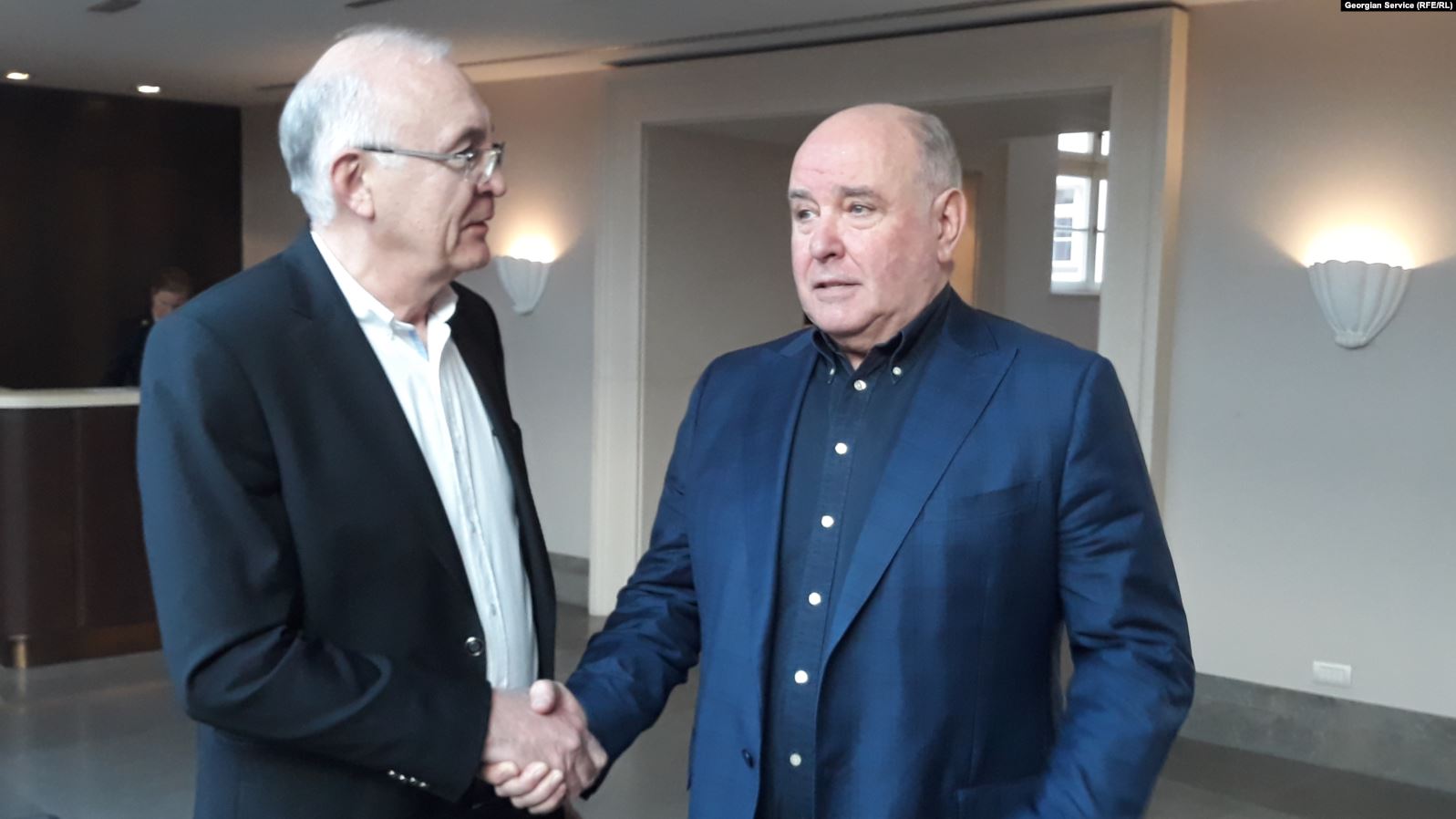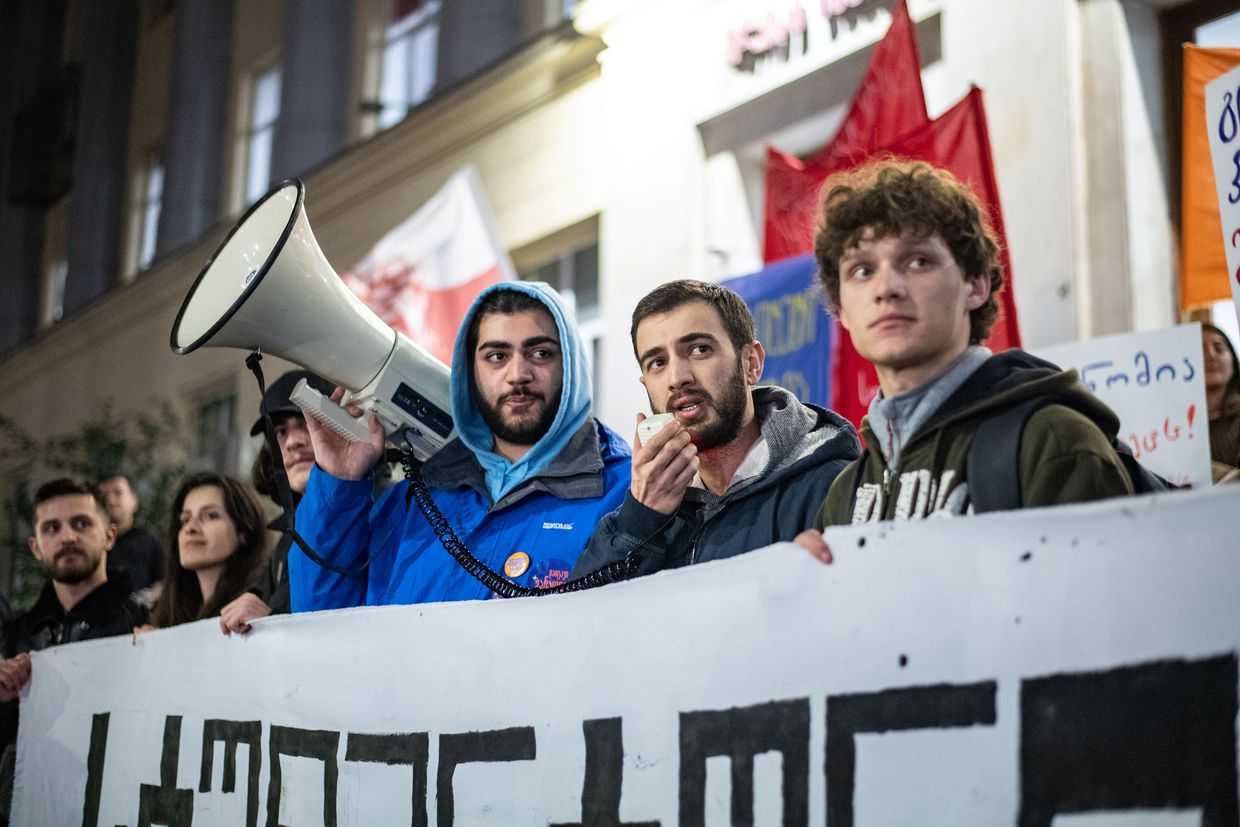

Russia has warned Georgia that it needs to choose between a ‘friendly regional atmosphere in the South Caucasus or a Euro-Atlantic agenda’, as attempts to do both may result in ‘the most serious consequences’. The comments were made by Russian Deputy Foreign Minister Grigory Karasin, who said that ‘if military NATO activity develops in the South Caucasus, sooner or later this will lead to problems’.
On 27 February, Zurab Abashidze, Georgia’s Special Representative for relations with Russia, met with Karasin in Prague to discuss Georgian-Russian relations.
After the meeting, the Russian Foreign Ministry website noted that, despite positive developments, ‘Georgia’s military cooperation with NATO, including the holding of large-scale military exercises on Georgian territory, remains a major irritant for bilateral relations’.
It also quoted Karasin as saying that ‘openly unfriendly public speeches by high-ranking Georgian officials have a negative impact on the mutually beneficial development of bilateral cooperation’.
Karasin elaborated on Russia’s dissatisfaction with statements from Georgian officials in an interview with Russian news agency Kommersant. During the interview, he said ‘the harsh statements of Georgian politicians are multiplying’, pointing to comments from the Georgian President, Prime Minister, and Foreign Minister.
‘They talk about the accelerated movement towards NATO, the so-called “Russian threat to the whole democratic Europe” and so on. Naturally, this is jarring to us. This does not contribute to strengthening the atmosphere of closening relations between Russia and Georgia’, Karasin said.
He also noted that Russia had urged Georgia to ensure that ‘there are no unpleasant surprises’ in relations between the two countries.
‘The fact is, the NATO agenda is becoming increasingly active in Georgian foreign policy. Quite often, large-scale NATO exercises are held there, and Georgia contributes to the participation of other countries in the region, such as Armenia, for example’, Karasin said.
‘It is clear that if NATO military activity develops in the South Caucasus, sooner or later this will lead to problems. We remember how the Ukrainian problems began. This is absolutely the same question’, Karasin said.
Abashidze told OC Media that the statements Karasin made to the media after their meeting were threatening. However, according to him, Karasin had a different tone during their conversation.
‘The threatening comments he made to the media are absolutely unacceptable and harm Russia’s international reputation’, Abashidze said.
Abashidze’s meeting with Ivanishvili
Prior to his meeting with Karasin, Abashidze paid a visit to Georgian Dream’s leader Bidzina Ivanishvili on 25 February, for which he was heavily criticised by the Georgian opposition.
Salome Samadashvili, an MP from the opposition United National Movement Party, told Rustavi 2 that the Abashidze-Karasin negotiation format harmed Georgia tremendously, as Karasin was threatening and drawing red lines for Georgia.
‘It is unclear why Abashidze met with Ivanishvili when he is a special representative of the Prime Minister’, Samadashvili said.
According to Karasin ‘the whole tone of the Prague meeting’ was a reflection of Abashidze’s meeting with Ivanishvili, Ekho Kavkaza reported.
Abashidze told OC Media that he met with Ivanishvili because he was ‘a very important political figure, the chairman of the ruling party’. He said he notified him of the topics he planned to discuss in Prague but did not give further details about the meeting.
‘I have a good relationship with Bidzina Ivanishvili. Why is it bad if he’s in the know? He was very attentive and it was a brief meeting. I put him in the know about the format and upcoming meetings. Similar meetings will also take place in the parliament’, Abashidze said.
The warnings from Karasin were commented on by the head of mission at the NATO Liaison Office in Georgia, Rosaria Puglisi, who said that what NATO does in Georgia increased Georgia’s defence capabilities only.
According to Netgazeti, she said NATO was not increasing Georgia’s aggressive capabilities, and added that Georgia had the right to become stronger in order to better protect its people and territories.
Previous threats
Russia has previously threatened Georgia with possible military measures. The chairman of the Russian Duma’s Defence Committee warned in October 2018 that Russia would take ‘diplomatic and military measures’ over a US-funded lab in Georgia.
He said the Lugar Centre in Tbilisi was ‘designing bio-weapons and viruses’, while Georgia called the accusation ‘absurd propaganda’.
The Richard Lugar Centre for Public Health Research is a US-funded facility run under the Georgian Health Ministry’s control. It officially opened in August 2013 but its establishment began in 2004 following US–Georgia agreements signed in 1997 and 2002 on cooperation in the prevention of proliferation of technology and pathogens related to the development of biological weapons.
Russia began officially expressing concern about the lab after former Georgian security chief Igor Giorgadze made a statement in Moscow on 11 September that the Lugar Laboratory was conducting experiments on people and creating biological weapons.
Myth Detector, a myth-debunking initiative by the Media Development Foundation (MDF), a local non-profit group, investigated Giorgadze’s statements and found his allegations ‘absurd’ because ‘the Lugar Laboratory is involved only in the part of diagnostics rather than treatment of the Hepatitis C elimination programme’.
[Read more about Russia’s warning on OC Media: Russia warns of ‘military measures’ over US-funded lab in Georgia]









